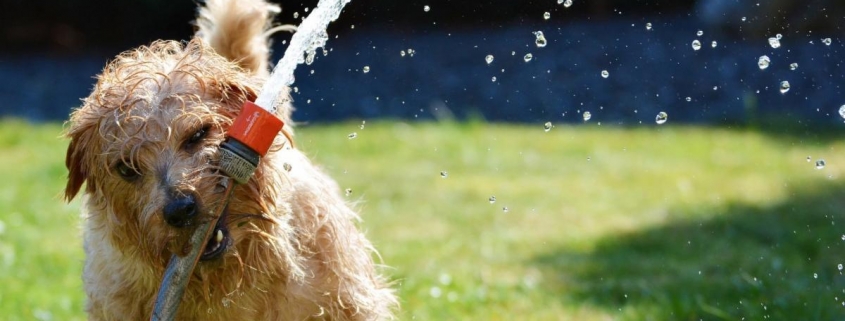Reduce Your Water Use
It is estimated that lawn and landscape irrigation accounts for more than half of all residential water use. This is the same water that we drink, feeds our wetlands, and fills our community ponds.
A recent study found that homeowners can reduce their water consumption by over 30% by simply readjusting the automatic irrigation system on a regular basis. The lesson here is don’t just set it and forget it. Pay close attention to the weather and rainfall patterns and frequently adjust your irrigation timers accordingly. Often, rainfall can provide all the water that your lawn and plants need. Also, carefully inspect and adjust your spray-heads on a regular basis, making sure that your sprinklers are not also watering the sidewalk, driveway, or street.
The type of plants and grasses that we use in our landscaping can be another reason for wasteful watering practices. By gradually expanding beds with low-maintenance, native plants, and reducing the size of our lawns, we can eventually save a tremendous amount of time, money, and water. The rule here is “right plant, right place.” Pick the plants that are the most appropriate for the specific conditions of your yard (sun or shade, moist or dry soil, etc.) and will require the least amount of water and fertilizer.
We also often apply much more water than our plants and grass really need to remain healthy. Over-watering can result in a shallow root system, making your lawn less drought-tolerant and more susceptible to weed growth, disease, fungus, and insects. Irrigate only when your lawn shows signs of stress from lack of water such as when the leaf blades begin to fold in half, the lawn turns a bluish-gray color, or footprints linger.
If you have an automatic irrigation system, consider installing a soil moisture sensor. These inexpensive devices can cut your sprinkler system water usage by more than half by continuously checking soil moisture levels and preventing your sprinklers from operating when watering is not needed.
Finally, consider installing a rain barrel to conserve water and prevent runoff that can wash fertilizers and chemicals down storm drains and into our canals and other waterways. By working together to use water more efficiently, we can save money, conserve our groundwater resources, and protect this precious resource.




